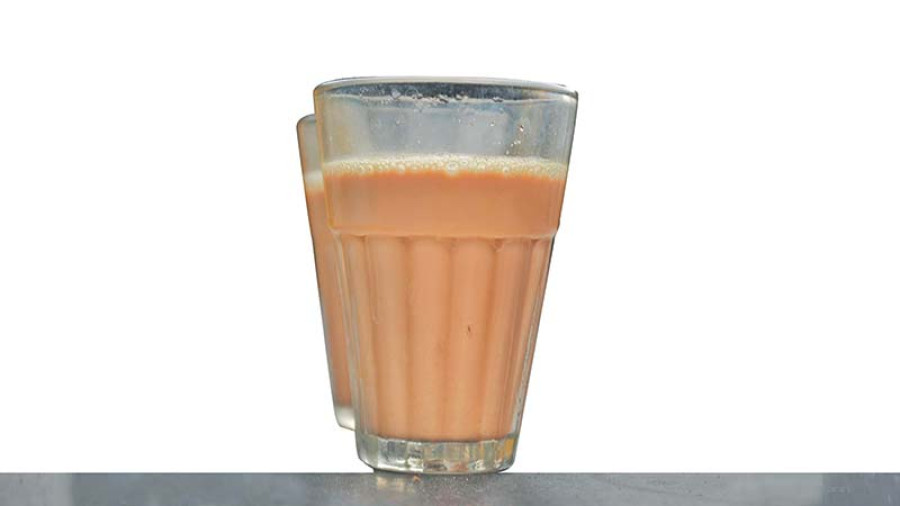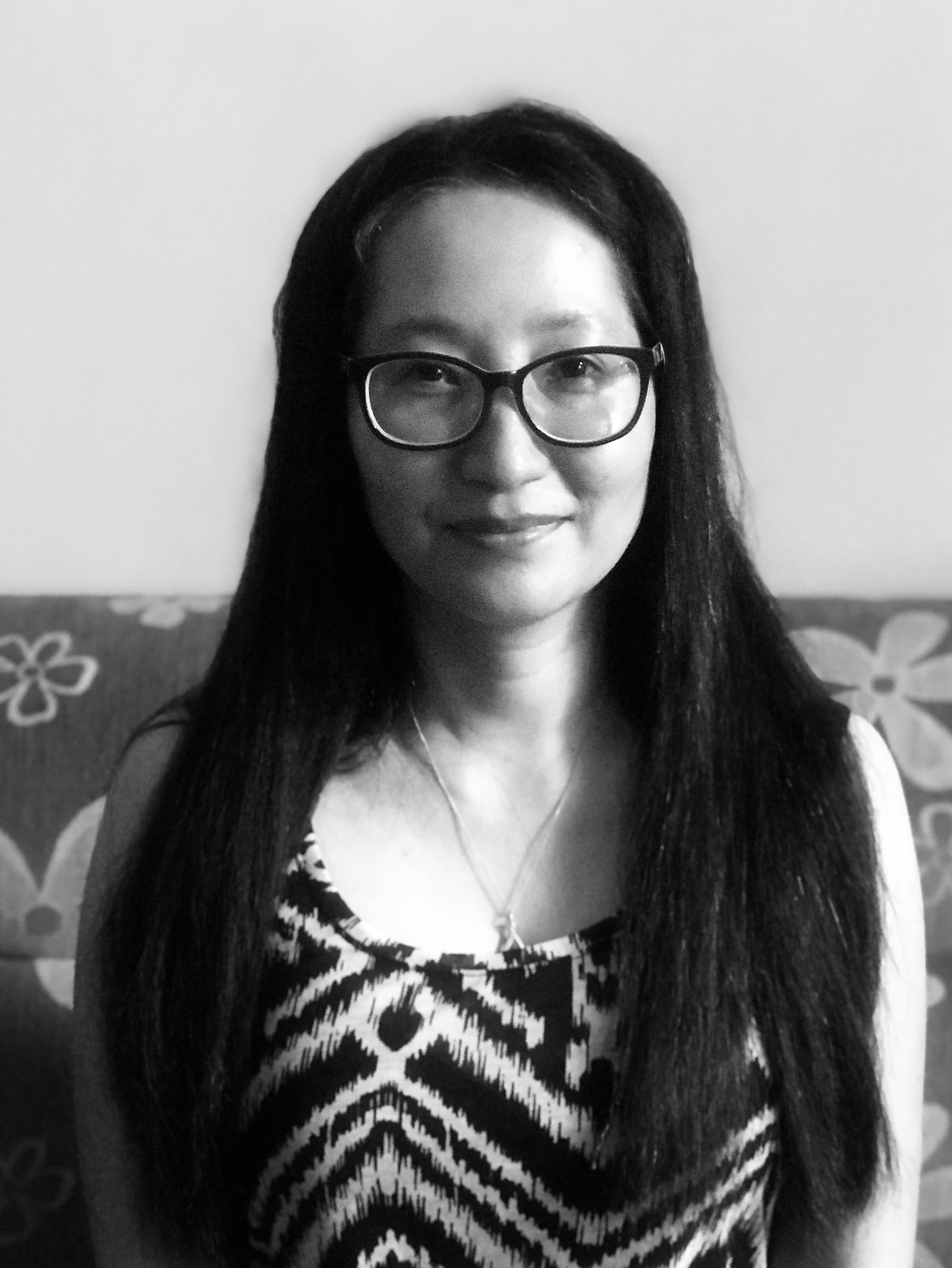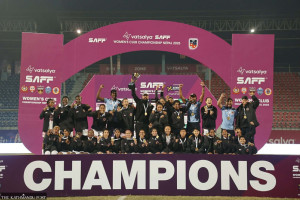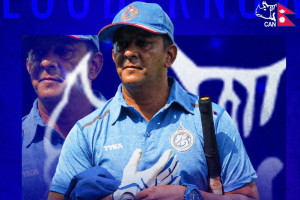Sports
Tea
The word ‘tea’ leaves such a nice aftertaste in your mouth, long after you’ve said it. Teea…like some vowel might follow to complete the word.
Prateebha Tuladhar
The word ‘tea’ leaves such a nice aftertaste in your mouth, long after you’ve said it. Teea…like some vowel might follow to complete the word. Or like a stray alphabet, just hanging out there. But tea is just tea, drunk in several forms on a single day, in mugs and cups of all kinds of shapes and sizes and in all kinds of places.
The first thing on my mind each morning is a cup of tea, even as I deal with the ordeal of dragging myself out of bed. It isn’t before I’ve fiddled with my phone for a good ten minutes, that I step out of bed. And the first main activity of the day (besides getting out of bed) is to put the water to boil.
It seems like I’ve become a part of the conversation my parents have had every morning, for as long as I’ve known them. The conversation revolves around tea.
My father prepares tea religiously every morning. It is an elaborate ritual that will be followed by a similar breakfast procedure. But more elaborate is the process of seeking my mother’s approval of the beverage. And the approval, of course, is rare. When they were younger, either the sugar was never right, or the strength of the leaves or its kind, or the potion of water. Sometimes, it had been over-boiled. There have always been too many details around tea in this house.
After my mother gave up sugar in her tea, the conversation has lost the sweet detail. Now, it’s bland—usually about whether or not my father waited long enough for the tea to steep.
And how have I become a part of this conversation? Well, I prepare it most mornings, now. So, I bear the brunt of their criticism on the tea not being so right. Regardless of what the tea turns out to taste like, it is the process that excites me.
My favourite tea to make is Nepali chiya. You bring the water to boil. Put the leaves in and the masala (this I experiment with— it might range from cinnamon, cloves and cardamom to ginger and pepper, depending on who is expected to drink it) and then add milk and bring it to boil briefly. Just so. The tea has to look strong enough to pull you through the day. Kada, as most Nepalis seem to prefer from their habit of drinking at tea stalls where the utensil’s inside becomes a layer of milk and tea residue, from cooking several shifts, over and over again. I sometimes try to imitate the way the tea stall owners let the tea steep while it cooks. It’s the only way to drink chiya— molten from over-boiling, even if only too sweet sometimes.
In this day and age of instant gratification, however, it’s mostly about choosing tea bags in your favourite flavour from the department stores. Try chamomile if you can’t sleep. Green if you are about antioxidants. The tea bags should go into boiling-hot cups of water or into fancy tea pots. We like teas to be served pretty. A little unlike coffees. Coffees are allowed to look rugged, unabashed and swirling thick.
But tea hasn’t always been a favourite with me. At least, not during my Darjeeling days. The tea ‘provided’ in our hostel would put Darjeeling to shame. It was the same colour as the water from the huge dishwasher outside the refectory. The only taste it carried was that of sugar. But we were a big group of hangry-young-women then. And we drank kettles-full of the sugary, brown beverage to wash down samosas or aloo chops or stale toasts or whatever was being served. I hated the thought of tea for a long time after.
My first memory of drinking tea goes back to my childhood, at my maternal grandparents’ house. The family home was always thriving with the hustle and bustle of a big family kitchen where the fire was always kept going. The children would wake up to two huge flasks of tea. One containing the savory tea with milk and a pinch of salt and some butter. My late maternal grandfather, who suffered from diabetes, would finish several cups in a day. The other thermos had the same tea, but sans butter and with sugar instead of salt. Every member in the family came up to the kitchen whenever they woke up and helped themselves to the flasks. Mornings were slow in that house, as people chatted, bit into thick Tibetan bread and sipped tea. Some mornings, tsampa flour and butter and some more sugar would be thrown into a cup of tea. Stir. Quick breakfast.
Teas in those days were about being with family. Conversations. My paternal grandparents used to drink black tea every morning, conversing for hours as they sipped. They called it ‘raang’. Colour. The colour of the sunrise, perhaps. Black tea with a little sugar and a dash of black pepper. You could never tell who brew the tea that morning— both of them prepared tea to taste exactly the same. So many years after my grandmother, my grandfather still drinks his raang every morning; but alone. If his bedroom door is ajar, I catch a glimpse of him sitting before the TV, sipping in silence.
My love for tea probably comes from them. But I actually only learned to drink tea when I started working as a journalist. One of my editors once said he did not trust journalists who did not drink or smoke. In jest, of course, since he did neither himself. So, to make up for my own lack of excuse to join conversations outside of the newsroom, I cultivated the habit of drinking chiya. Chiya khane ho? Chiya khana jam na. Chiya khana maan lagyo. Soon, I was stuck with the last
one. Tea became the answer to everything unresolved, like pitches that did not work or a nut graf that did not justify itself. Tea became the answer to many stressful evenings when the headlines reeled under the weight of misery and death, and you sought solace in a tea stall by the roadside. Tea became the escape where you and your favourite colleague could catch up.
Teas punctuate my days still, evenly hyphenating my regular four cups of black coffee without sugar. They are moments when I’m looking for respite, as opposed to when I’m downing coffee after coffee, as I type. Tea is perhaps an old habit from my days as a reporter, when I felt like a cup of tea would cure anything, from a story that wasn’t taking shape in my mind, to heartbreak.
And so I drink tea, while friends tease that if they squeezed me, I’d drip of caffeine. And I probably would.




 10.12°C Kathmandu
10.12°C Kathmandu















